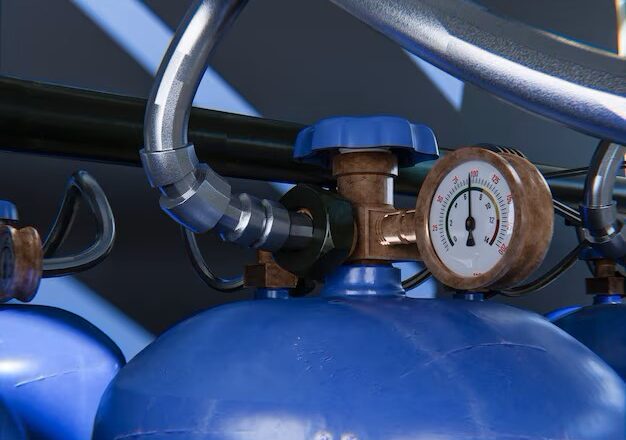Cryogenic Operational Processes, Equipment, and Safety 29th September – 3rd October, 2025
- Description
- Reviews
Course Overview
This specialised 5-day program provides participants with a detailed understanding of cryogenic processes, equipment, and safety practices involved in handling materials at extremely low temperatures, typically below -150°C. The course explores gas liquefaction technologies, storage, and transportation systems used across energy, aerospace, and medical industries. Participants will gain expertise in operating and maintaining critical cryogenic equipment such as cryogenic tanks, pumps, compressors, and heat exchangers while prioritising safety and system integrity in cryogenic environments.
Course Objectives
By the end of this course, participants will be able to:
-
Understand the principles and applications of cryogenic processes.
-
Analyse gas liquefaction technologies for materials like LNG, oxygen, and nitrogen.
-
Operate and maintain cryogenic equipment, including tanks, pumps, compressors, and heat exchangers.
-
Identify hazards associated with cryogenic systems and apply safety protocols to mitigate risks.
-
Assess the design, operational requirements, and performance of cryogenic systems.
-
Implement best practices for cryogenic storage, transportation, and system maintenance.
Target Audience
-
Process engineers and plant operators.
-
LNG production and transportation personnel.
-
Cryogenic equipment maintenance professionals.
-
Safety engineers and HSE specialists.
-
Energy sector professionals working with liquefied gases.
-
Engineers in aerospace and medical gas industries.
Daily Agenda
Day One: Fundamentals of Cryogenics
-
Introduction to cryogenics: definition, scope, and applications.
-
Thermodynamic principles of cryogenic processes.
-
Properties and behaviour of gases at low temperatures.
-
Overview of cryogenic systems: production, storage, and transport.
-
Key industries utilising cryogenics: energy, aerospace, and medical applications.
-
Workshop: Identifying cryogenic process flows and equipment.
Day Two: Cryogenic Gas Liquefaction Processes
-
Principles of gas liquefaction and phase change.
-
Natural Gas Liquefaction (LNG): process stages and technologies.
-
Liquefaction of industrial gases: oxygen, nitrogen, and argon.
-
Cryogenic refrigeration cycles: Joule-Thomson and Claude cycles.
-
Efficiency considerations in cryogenic processes.
-
Case study: Comparison of liquefaction technologies in LNG production.
Day Three: Cryogenic Equipment and Operations
-
Design, operation, and maintenance of cryogenic tanks.
-
Cryogenic pumps: types, functionality, and performance monitoring.
-
Compressors and their role in cryogenic systems.
-
Heat exchangers: cryogenic heat transfer mechanisms and performance optimisation.
-
Insulation techniques for cryogenic systems to minimise heat ingress.
-
Hands-on session: Analysing operational parameters of cryogenic equipment.
Day Four: Safety and Risk Management in Cryogenic Operations
-
Identifying hazards in cryogenic processes: thermal, pressure, and material-related risks.
-
Safety protocols for handling cryogenic liquids and gases.
-
Personal protective equipment (PPE) and emergency response procedures.
-
Preventing risks: system integrity, leak detection, and overpressure protection.
-
Cryogenic storage safety: venting, boil-off gas management, and spill prevention.
-
Workshop: Developing a cryogenic safety and risk management plan.
Day Five: Cryogenic System Design, Transportation, and Future Trends
-
Design considerations for cryogenic systems and pipelines.
-
Transportation of cryogenic liquids: tankers, containers, and pipelines.
-
Cryogenic logistics: challenges in LNG shipping and industrial gas transport.
-
Emerging trends: advancements in cryogenic technologies and materials.
-
Sustainability considerations in cryogenic operations.
-
Final group activity: Evaluating cryogenic system performance and safety measures.
Why Choose this Course?
This course equips participants with the knowledge and practical skills needed to operate, monitor, and maintain cryogenic systems safely and effectively. By focusing on both process optimisation and risk mitigation, participants will gain a comprehensive understanding of cryogenic technologies applicable to diverse industries.
Learning Outcomes
Upon completion of the course, participants will:
-
Demonstrate an understanding of cryogenic processes and their applications across industries.
-
Operate and maintain cryogenic equipment to optimise performance and safety.
-
Identify risks associated with cryogenic systems and apply safety protocols effectively.
-
Evaluate gas liquefaction and storage technologies for operational efficiency.
-
Develop maintenance and risk management strategies to ensure cryogenic system reliability.





